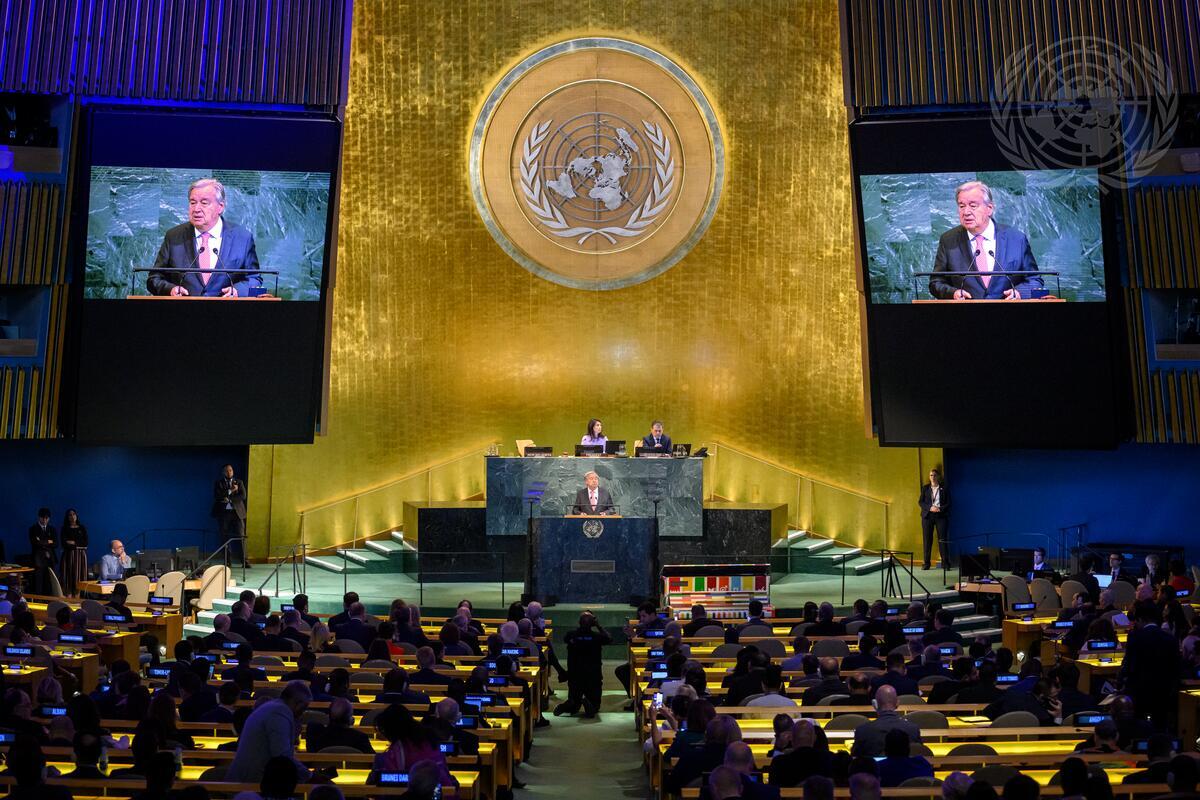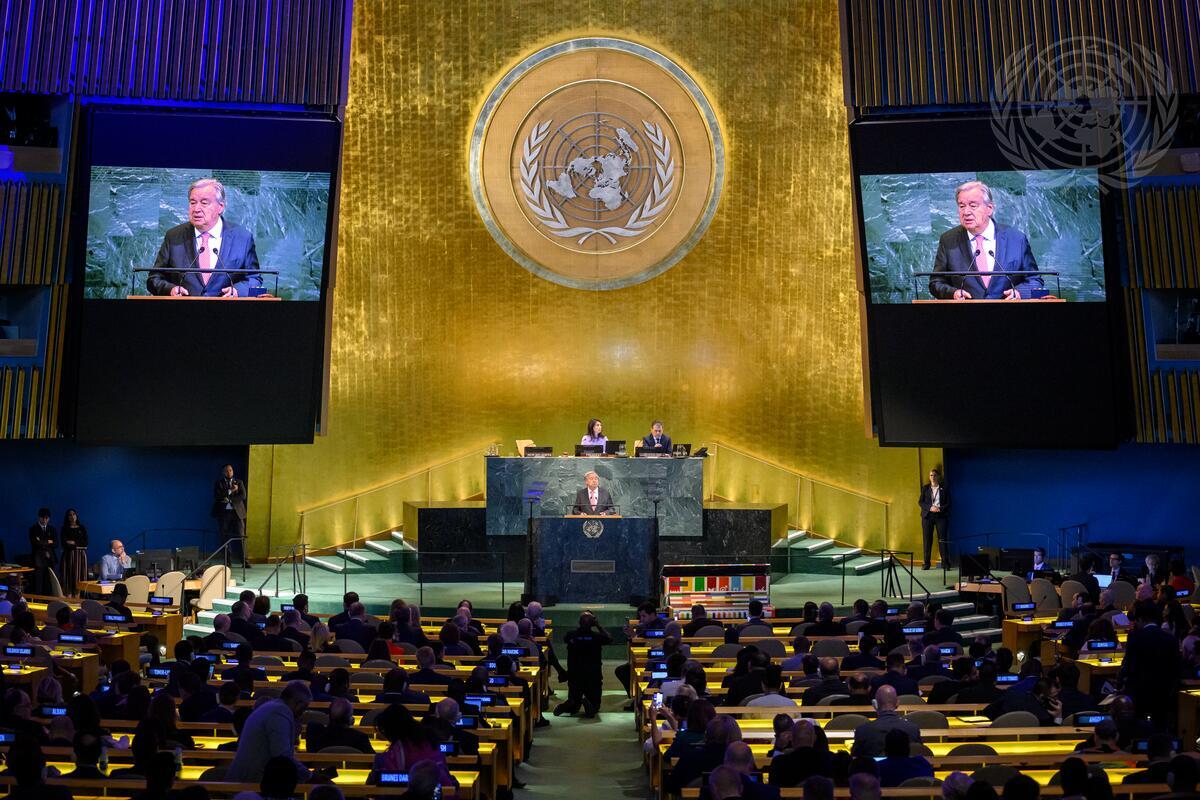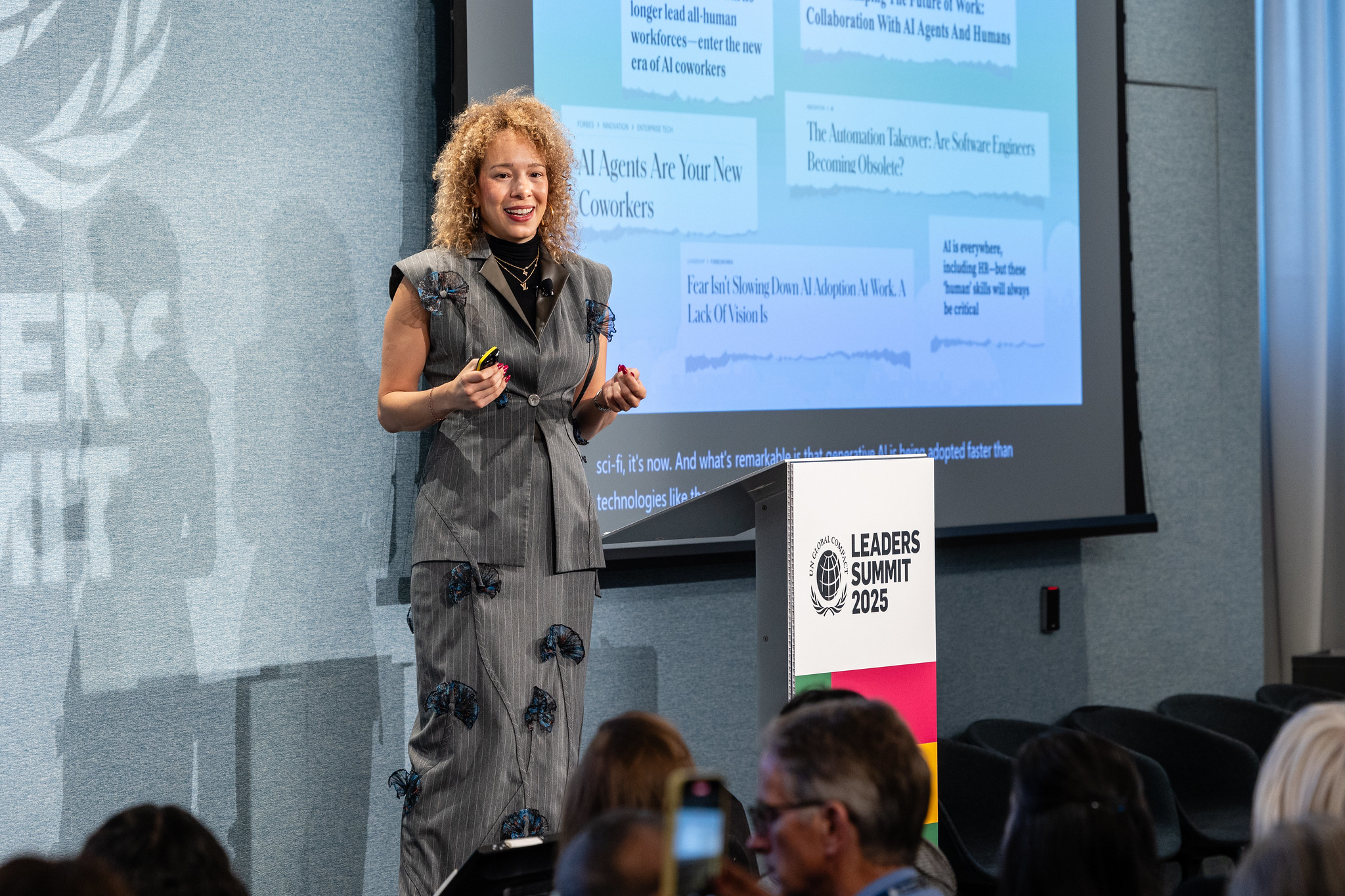
news update
Five UNGA80 Takeaways Every Business Leader Needs to Know
As the 80th UN General Assembly High-Level week concludes, here are five takeaways from the UN Global Compact every sustainability-minded business leader will want to know.

Businesses have a critical role to play in solving today’s crises, rebuilding trust and building a sustainable future. From climate disruption to widening inequality, the role of the private sector has never been more crucial.
1. Sustainable Businesses are Competitive Businesses
The business case for sustainability is clearer now than ever: companies that align with sustainability and international cooperation are better positioned to manage risks and seize opportunities.

According to the United Nations Global Compact–Accenture 2025 CEO Study, 88 per cent of CEOs say sustainability creates more value today than five years ago. Despite global headwinds, ninety-nine per cent of CEOs say they will maintain or even expand their climate, environmental and social commitments.

Companies are not just setting targets, they are embedding sustainability into strategy, operations and investment.
Financing and innovation are key. From blended structures to breakthrough technologies, private sector leadership will drive sustainable transformation.
Indeed, as illustrated through the UN Global Compact CFO Coalition, we’ve already seen nearly $300 billion in reported SDG-aligned investments in less than five years.
The direction of growth is clear: businesses that act decisively on sustainability, backed by innovative finance, technology and leadership, will not only create lasting value for shareholders but also drive the systemic change needed to achieve the SDGs.
2. Urgency and Credibility Will Set Businesses Apart
In this new era, companies that act with urgency and credibility will hold a competitive advantage over businesses that do not.
Only 35 per cent of the SDG targets are on track or making progress on their achievement, and the annual financing gap is nearly $4 trillion. At the same time, fewer than 15 per cent of CEOs feel prepared for global shocks.

Companies must act faster by setting time-bound targets and reporting transparently. Through tools like the modernized UN Global Compact Communication on Progress, now used by more than 13,800 companies, companies can help build the trust and accountability they need to succeed in today’s ever-changing and tumultuous landscape.
3. Global Climate Action Gains Speed
At the 2025 Climate Summit, nearly 100 countries announced their commitment to implementing new climate targets ahead of COP30 in Belém, Brazil, this November. For the first time, several major economies, including China and Nigeria, announced economy-wide emissions reduction targets covering all greenhouse gases and sectors. Other countries detailed ambitious renewable energy goals, plans to curb methane emissions, strategies to safeguard natural resources and phase out fossil fuels.

Science demands action. The law commands it. The economics compel it. And people are calling for it.” - UN Secretary-General, António Guterres
Global leaders emphasized the benefits of accelerating the energy transition to unlock jobs, growth and increase energy security. Energy transition and adaptation are investable spaces — drawing private capital into renewables, storage, nature, resilient infrastructure and supply-chain upgrades. CFOs are scaling commitments, with most planning to increase sustainability investment — opening doors to co-investment and innovation partnerships.
Developing countries underscored the importance of incorporating adaptation, resilience and loss and damage measures within their Nationally Determined Contributions (NDCs), stressing the urgent need for scaled-up financing to meet and surpass their ambitions.

Businesses that act now by adopting greener solutions have the opportunity to gain a competitive edge as the world shifts towards renewable energy, reduced emissions and overall more sustainable solutions.
4. Financing for the future includes sustainable investments
What if the strength of the private sector’s role to advance economic growth and social development lay in the ability to view development challenges as investment opportunities?
Investing in sustainable solutions across food, water, health and climate could unlock $10 trillion in new business opportunities and create nearly 400 million jobs by 2030.
This means aligning capital to SDG outcomes via key performance indicators (KPIs,) sustainability-linked instruments and outcome-based mandates. It means pricing physical risk and funding adaptation—ports, grids, water and nature-based solutions—alongside decarbonization.
Companies can standardize impact disclosure to decision-grade, comparable metrics across portfolios and scale blended-finance vehicles (first-loss, guarantees, local-currency facilities) to de-risk projects in emerging markets.

Financing for the future means investing with measurable impact, where profit and purpose reinforce each other. By embedding sustainability into core business models, companies don’t just mitigate risks, they shape markets, drive innovation and deliver inclusive growth. When harnessed strategically, the private sector becomes a force multiplier for the SDGs: unlocking capital, scaling solutions and transforming ambition into action.
5. Collective Strength for Progress
Global problems require global solutions. No single company, government, or country can solve systemic challenges alone. Together, through collaboration and collective action, anchored in the Ten Principles and the SDGs, businesses, Governments and multilateral institutions can drive meaningful change.
Ninety-seven per cent of CEOs say collaboration across industries and value chains is essential, while 92 per cent call for stronger global governance. The message is clear: tackling today’s interconnected challenges requires coherence, trust and a shared commitment across all sectors.
Businesses, multilateral institutions and governments each bring unique capabilities. Only by collaborating can we tackle the scale and complexity of today’s challenges. By sharing knowledge, aligning incentives and leveraging collective resources, companies can accelerate SDG progress and create resilient, inclusive and sustainable economies. In short, the path to impact is catalyzed by collective strength.

UNGA80 comes at a time of unprecedented global challenges and opportunities. The private sector must play a role in shaping a more just, inclusive and sustainable future.
As the UN Global Compact, the world’s largest global sustainability initiative, commemorates its 25th anniversary, the call for action remains strong: together, we unite business for a better world — across gender equity, living wages, water stewardship, climate innovation, resilient supply chains, sustainable finance, oceans and more. Together, alongside 20,000+ companies across 160+ countries, we will turn ambition into credible action at scale.

